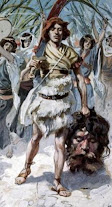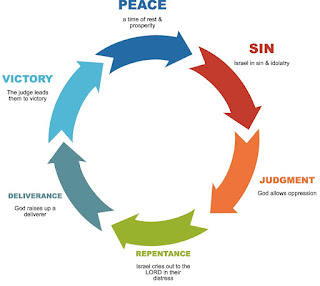Day 189: Hosea 1-4
Imagine the pain in Hosea’s family. We need this kind of imagery to grasp an inkling of the pain of God over His people’s treachery to Him. They’d attributed their blessings to their “lovers” - was this not the idols of the nations round about them? - and not to God who had actually given them (Hosea 2:4, cf., 2:8). Their heart was taken away from Him by their excess indulgence and idolatry (Hosea 4:11). So He determined to make them feel the same kind of betrayal in their marital and parental relationships. (Hosea 4:13) Are we experiencing a similar judgment? It seems so. A quick look at statistics shows Americans are having affairs and divorces at incredible rates. The hook up culture is rampant and shameless among our youth. It sounds as if people have reconciled themselves to the idea that committed marriages and stable homes and self control are unattainable ideals. But this hides enormous pain and shame. How could it not?










